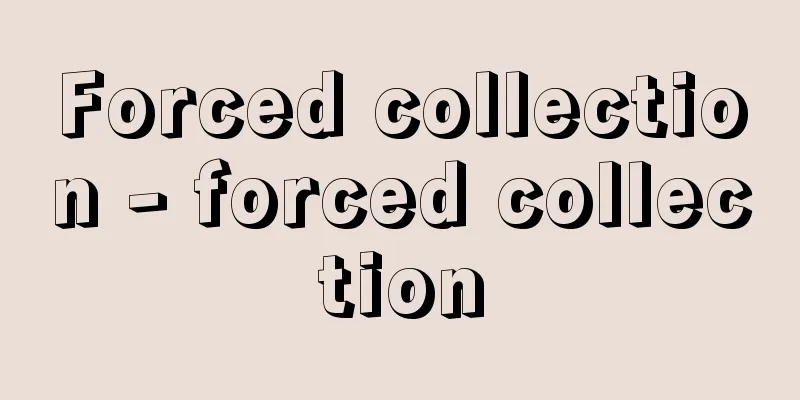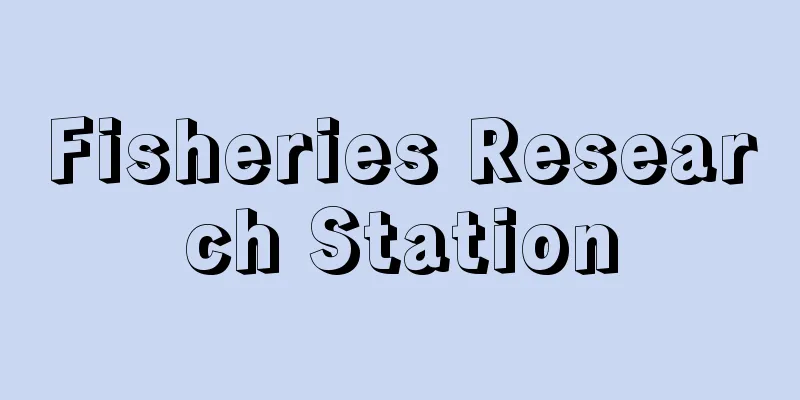Forced collection - forced collection

|
Under administrative law, when a citizen fails to fulfill a monetary obligation owed to the national or local government, the administrative agency can liquidate the debtor's assets without filing a lawsuit in court to achieve the same state as if the obligation had been fulfilled. It is only permitted under the law, based on the principle of administration by law. If there is no provision allowing for compulsory collection, even the national or local government can only realize the claim by filing a civil lawsuit in accordance with the general principle and obtaining a debt instrument (final and favorable judgment, declaration of provisional execution, etc.). A typical example of allowing for compulsory collection is national and local taxes. If the law allows for compulsory collection of other claims, it stipulates that they can be disposed of in accordance with the example of national and local tax delinquency procedures. Contributions, membership fees, and fines are subject to compulsory collection of claims held by local governments, but compulsory collection of other fees is only possible if there is a provision in the law that allows for compulsory collection (Article 231-3, Paragraph 3 of the Local Autonomy Law). In reality, there are few laws that allow for compulsory collection, so many debts are not subject to compulsory collection, such as rent for public housing, tuition fees for public schools, water charges, etc. The procedure for compulsory collection is carried out in the following order: demand for payment, attachment of property, liquidation of property, and distribution of the liquidation proceeds. [Yasuhito Abe] Source: Shogakukan Encyclopedia Nipponica About Encyclopedia Nipponica Information | Legend |
|
行政法上、国民が国・地方公共団体に対して負う金銭給付義務を履行しない場合に、行政庁が裁判所に訴えることなく、自ら債務者の財産を換価して前記の義務が履行されたのと同じ状態を実現するための作用をいう。法律による行政の原理により法律に基づいてのみ認められる。強制徴収を認める規定がない場合には、国・地方公共団体といえども一般原則により民事訴訟を提起し、債務名義(確定勝訴判決、仮執行宣言等)を得て初めて債権の実現を図ることができる。強制徴収を認める典型例は国税・地方税である。それ以外の債権について法律が強制徴収を認めようとする場合には、国税・地方税滞納処分の例により処分できると規定している。地方公共団体の有する債権については、分担金、加入金、過料は強制徴収の対象となるが、その他の使用料は強制徴収できる旨法律に規定があって初めてそれが可能である(地方自治法第231条の3第3項)。現実には強制徴収ができる旨規定している法律は少ないので、公営住宅の家賃、公立学校の授業料、水道料金など、強制徴収の対象とならない債権が多い。強制徴収の手続は、督促、財産の差押え、財産の換価、換価代金の配当の順に行われる。 [阿部泰隆] 出典 小学館 日本大百科全書(ニッポニカ)日本大百科全書(ニッポニカ)について 情報 | 凡例 |
<<: Forced Savings - Kyosei Chokin
>>: Administrative investigation - administrative investigation
Recommend
Taketoshi Kikuchi
?-? A military commander during the Nanboku-cho p...
Kurama Temple
Located in Kurama Honmachi, Sakyo Ward, Kyoto Cit...
Max (Prinz von Baden) (English spelling) Max
...However, this series of mass actions was conta...
Pthirus
...The Neolinognathidae family is a special kind ...
Wa tribe - Wazok (English spelling)
They live from the area east of the Salween River...
ultra VLCC (English)
… 1960-65 was a period of increased capacity and ...
Wulfenite
...It is a mineral composed of the complex anion ...
Aparcelo - Aparcelo
... Hacienda management is broadly divided into t...
Vedanta (English spelling)
…It is an extremely important document as a sourc...
Keien - Kyoen
...After Ryuen and his disciples, who were active...
Kozlov, Frol Romanovich
Born: August 18, 1908 in Roshchinino [Died] Januar...
Ethyl acetoacetate - Ethyl acetoacetate
C 6 H 10 O 3 (130.14). CH 3 COCH 2 COOC 2 H 5 . I...
Ship type - Senkei
(1) The three-dimensional shape of a ship. It mai...
Carotene - German
Carotenoids that do not contain oxygen in the mol...
Borrowed belly - Karibara
...Artificial insemination, which was once used p...


![Kanazu [town] - Kanazu](/upload/images/67cb3a741f807.webp)






